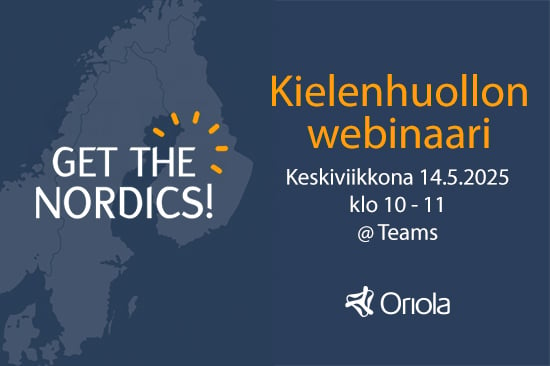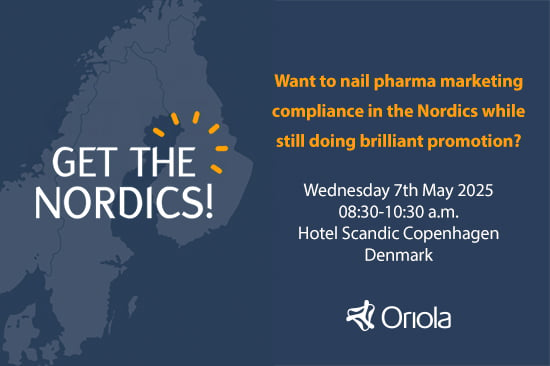Data solutions to promote health and welfare
11.12.2018
The Biobank Act took effect in Finland in 2013. During the same year, Heli Salminen-Mankonen and her colleagues founded the first Finnish biobank, Auria. In November 2018, after a long career in the public sector, Salminen-Mankkonen was appointed as Team Lead of the Real World Evidence of Oriola Corporation.
The establishment of biobanks was the trigger for collecting real-world data, i.e. data on the effectiveness of interventions in the everyday lives of patients. It was noted that the samples provided for the biobank held no value if they could not be combined with information about disease progression and treatments. The secure combining and refining of data from different sources with the aim of promoting health and welfare is Heli Salminen-Mankonen's passion. This passion drove her to join Oriola.
“The journey from molecule to a medicine that is available to patients may take decades. Nowadays, we have the possibility to utilise data and to refine it to a form that provides us with valuable information to support decision-making. This means, for example, that we can bring new medicines into the market sooner or change treatment practices”, says Salminen-Mankonen.
The unique real-world data research concept of Oriola includes the collection of real-world data from patients themselves through research pharmacies, thus providing us with information about the functionality and effectiveness of medications in the everyday lives of the patients. Patient-reported data plays a key role in creating a reliable full picture of the medicinal treatment of the patient. When combining patient-reported data with information from other sources, we can, for instance, find out why a certain medicinal treatment works for one patient but not for another.
Data is valuable in decision-making
Effective treatment is important for the individual, but also for the society and pharmaceutical industry. Medicines do not have the same effect on everyone. This can be partly explained by genetic factors, but genes are not the only deciding factors. The trends in medicine usage are also debated: for instance, how have the uses of antibiotics and antidepressants developed over the last decade, and what are the factors behind these developments?
The real-world data research that Oriola conducts can answer these and many other questions. The data we produce can provide useful information to support the treatment of the patients, for the planning of health care and the allocation of resources, and for developing medicinal products. The aim of the team, lead by Salminen-Mankkonen, is to produce value for different customer groups by developing unique solutions.
“We will launch various projects, introduce more advanced analytic tools - even based on artificial intelligence - and invest in strong partnerships. All of our activities are guided by a passion for building solutions to support the health and welfare of people”, Salminen-Mankonen concludes.
Nordic countries are excellent for real world evidence research
Nordic countries are known for their high-quality public health care systems, which are a prerequisite for a comprehensive collection of health data. Biobanks, national registers, legislation in support of pharmaceutical research and decades' worth of electronic health data stored by hospitals provide excellent opportunities for real-world data research. The individual identity number also contributes to research by offering the opportunity to combine data from different sources in a comprehensive manner. Our high-quality data protection know-how ensures that research can be conducted in a manner that keeps personal data safe at all times.
“Finns and Swedes are highly educated, trust their health care systems, and are willing to help others, and, thus, they also have a positive attitude towards pharmaceutical research”, Salminen-Mankonen concludes.


